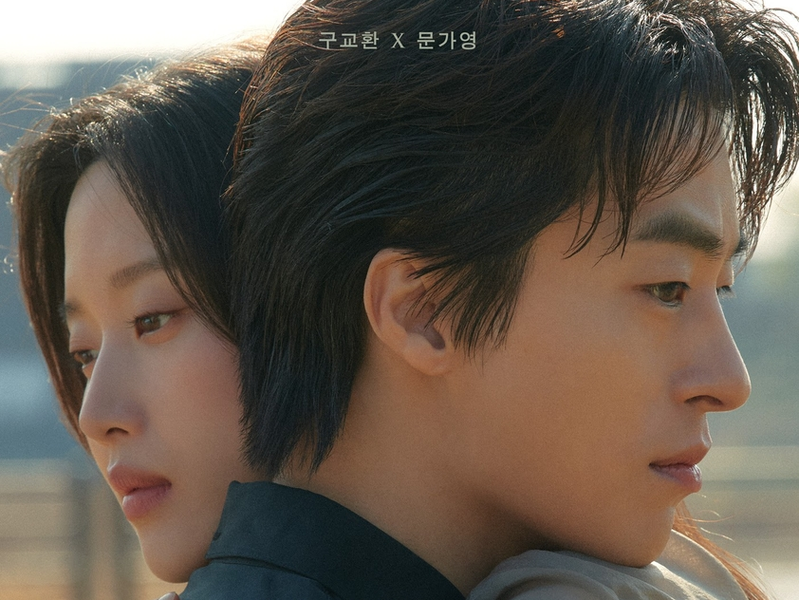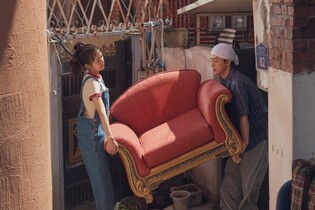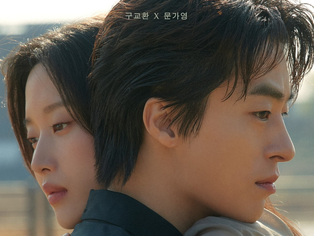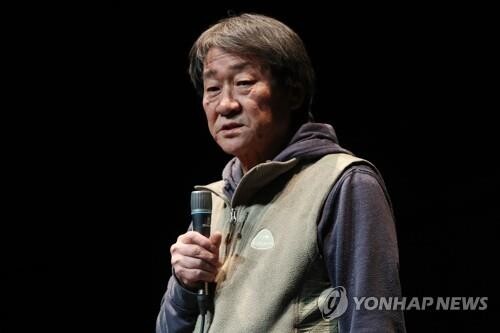 |
| ▲ Singer-songwriter and playwright Kim Min-ki is seen in this file photo taken Feb. 26 |
SEOUL, July 25 (Yonhap) -- Kim Min-ki, a name synonymous with Korean folk music and political activism, left an indelible mark on South Korea's cultural and political landscape.
Born in the turbulent era of the Korean War, Kim's life and career were characterized by a relentless pursuit of truth, justice, and artistic expression.
◇ Humble beginning
Kim Min-ki was born on March 31, 1951, in Iksan, North Jeolla Province, South Korea. His formative years were shaped by the harsh realities of post-war Korea, a period marked by economic hardship and political unrest. Despite these challenges, Kim displayed an early aptitude for music and literature, influenced by his father, who was a school teacher and a lover of traditional Korean music and poetry.
Kim's passion for music continued to grow during his high school years. He learned to play the guitar and began composing his own songs, drawing inspiration from the folk music revival happening globally at the time. His early exposure to political and social issues in Korea deeply influenced his songwriting, which often carried messages of resistance and hope. He later founded “Hakchon,” one of Korea’s greatest cradle for musical and theatrical arts.
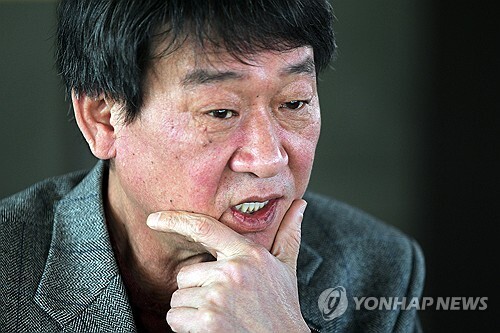 |
| ▲ Singer-songwriter and playwright Kim Min-ki is seen in this file photo taken Feb. 21, 2011. (Yonhap) |
◇ Influential Career and Musical Influence
Kim Min-ki's career as a musician and composer took off during his college years at Seoul National University in the late 1960s and early 1970s. This period in South Korea was marked by significant political turbulence, including student protests against the authoritarian regime of President Park Chung-hee. Kim became actively involved in the student movement, and his music quickly became a voice for the oppressed and a symbol of resistance.
One of Kim's most famous songs, "Morning Dew," released in 1970, became an anthem for the democratic movement in South Korea. The song's poignant lyrics and melancholic melody resonated deeply with young Koreans yearning for freedom and change. Despite its popularity, "Morning Dew" and many of Kim's other songs were banned by the government for their perceived subversive content. Nevertheless, these songs continued to be sung in secret and at protests, cementing Kim's status as a revolutionary artist.
Throughout the 1970s, Kim Min-ki's influence extended beyond his music. He wrote and produced numerous plays and musicals that tackled social and political issues, further solidifying his reputation as a fearless artist committed to social justice. His work often faced censorship and backlash from the government, but this only amplified his impact and the message he sought to convey.
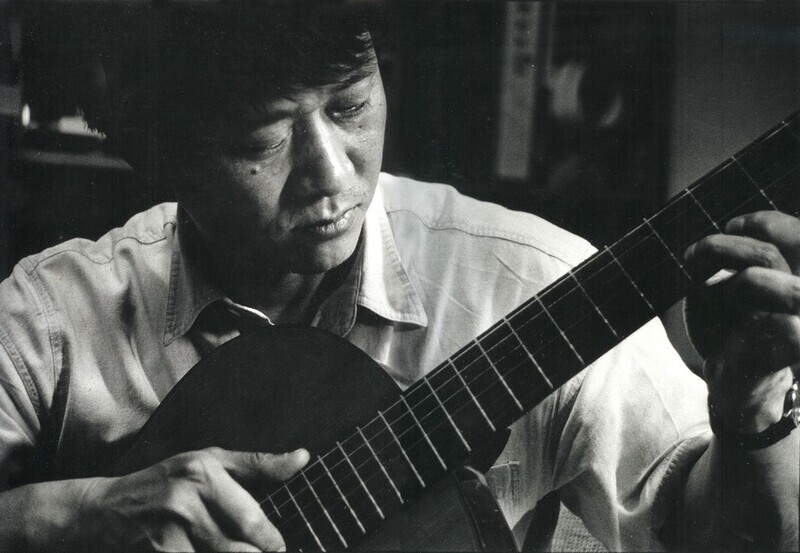 |
| ▲ Singer-songwriter and playwright Kim Min-ki is seen in this photo provided by music critic Park Seong-seo. (PHOTO NOT FOR SALE) (Yonhap) |
◇ Enduring Legacy in Korean Music and Society
In the 1980s, as South Korea began transitioning towards democracy, Kim Min-ki's contributions to the cultural and political spheres were increasingly recognized. Despite the challenges and censorship he faced, he remained steadfast in his artistic endeavors. Kim continued to write and produce music and theatrical works that reflected the changing dynamics of Korean society.
In his later years, Kim shifted his focus towards nurturing the next generation of artists. He became a professor at Hanyang University, where he taught musical theatre and continued to inspire young musicians and composers with his unwavering dedication to art and activism.
◇ Hakchon, the Creative Nest for Korea’s Leading Performing Artists
Actors who emerged from Hakchon, a theater company founded by Kim Min-ki in March, 1991, are quite famous.
Kim Yun-seok, Hwang Jung-min, Seol Kyung-gu, Cho Seung-woo, and Jang Hyun-sung, all widely known as the "Hakchon Eagle Five," have all passed through Daehangno's Hakchon.
Hakchon operated a namesake small theater in Daehangno for nearly 33 years, but the theater had to close due to Kim Min-ki's deteriorating health and management difficulties towards the end of 2023.
Many other notable figures such as Jeon Bae-soo, Lee Jung-eun, Bae Sung-woo, Bae Hae-sun, Kim Hee-won, Ahn Nae-sang, Kim Won-hae, Bang Eun-jin, and Nah Youn-sun have also been associated with Hakchon. Singers famous for their songs who came from Hakchon include Kim Kwang-seok, Yoo Jae-ha, and Kim Min-ki himself.
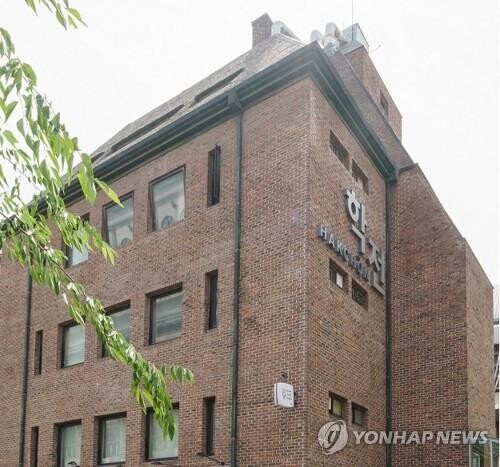 |
| ▲ This undated file photo shows the exterior of Hakchon Theater, which was an icon of Seoul's vibrant Daehangno theater street. (Yonhap) |
◇ His Legacy for Future Generations
Kim Min-ki passed away on July 21, 2024, at the age of 73. His death was a significant loss to the Korean music and arts community, but his legacy endures. Kim's music, particularly songs like "Morning Dew," remains a poignant reminder of the power of art to inspire change and resist oppression. His life's work continues to influence contemporary Korean artists and activists, serving as a testament to his enduring impact on Korean culture and society.
Kim Min-ki's life was a testament to the power of music and art as tools for social change. Born in a time of great turmoil, Kim harnessed his musical talents to give voice to the struggles and aspirations of his generation. Despite facing significant obstacles, including government censorship and political persecution, he remained committed to his artistic and activist pursuits.
Kim Min-ki's legacy is not only preserved in his music but also in the hearts of those who continue to fight for justice and freedom in Korea and beyond. His story is a powerful reminder of the enduring impact that one individual's courage and creativity can have on society.
jwc@yna.co.kr
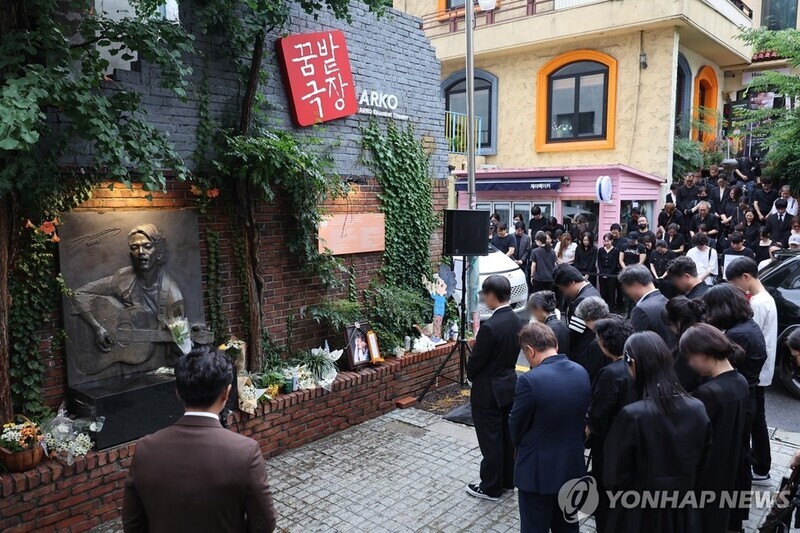 |
| ▲ Berated families and attendees hold a moment of silence in remembrance during the funeral of singer Kim Min-ki on July 24, 2024, at the Arko Dream Field Theater in Jongno-gu, Seoul. Kim operated the symbolic Hakchon small theater in Daehangno for over 30 years, nurturing numerous junior artists. (Yonhap) |
(C) Yonhap News Agency. All Rights Reserved





















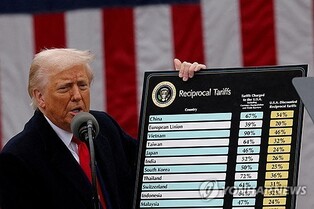







![[박스오피스]](/news/data/20260112/yna1065624915979156_480_h2.jpg)

